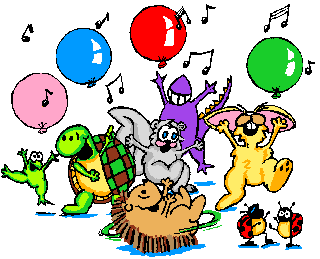I was talking with a friend about my interest in Zen philosophy and my inability to meditate (‘monkey brain’ swings from thought to thought and won’t turn off). I remember attending a seminar about spirituality and illness where a Zen master spoke of pain and discomfort as existing only due to a lack of acceptance. You want something other than what is, i.e. don’t accept what is, then that dissatisfaction is the root of the pain – physical or mental.  He seemed to be saying that if you accept the pain, or illness, or whatever, then it no longer hurts. No doubt I am oversimplifying, perhaps completely distorting what I think I heard, but it is an interesting line of thought, particularly when applied to life as a whole.
An old song is replaying in my head — I can’t get no satisfaction. I have too many things on my to-do list and not enough time to do them. Then I question the importance of these tasks, try to prioritize my time and weigh the benefits. What I am doing wrong? Why can I never reach “the goal” – Where’s the brass ring? Why can’t I find the key? Maybe I am at the wrong door? So I go back to the drawing board, trying, trying, trying, to get somewhere, but the truth is that I am no longer sure where that somewhere is. I’m beginning to think that maybe, just maybe, I am already there. That there, the somewhere, is here…and now.
There are oodles of apt sayings and aphorisms, the one that springs most readily to mind being life is a journey, not a destination. At one time or another, most of us question the meaning of our lives — this happens most often to those who survive life-threatening events or illnesses. Why were we spared? Were we so deserving or given a proverbial second chance to get it right this time? “What now?” I remember asking myself in October 1996. I didn’t know it then, and perhaps I am still clueless, but I suspect that the key lies within the question itself, specifically in the three-letter word NOW.
These thoughts are nothing new — to me or to you I imagine. Be they philosophers or just plain folks, people have pondered these questions throughout history. Alan Alda may not qualify as either plain or philosopher, but his latest book tackles the issue head on. According to NPR’s morning Edition, “Things I Overheard While Talking To Myself” is about the meaning of life.
Wondering if his life has had meaning, Alda concludes, “It’s really a crazy question to worry yourself over. Meaning has come to mean to me a lasting sense of satisfaction, a feeling when you get to the end of it that you haven’t wasted your time. And, for me, it’s noticing it while it’s happening.“
WHILE IT’S HAPPENING. That would be now.
Reminds me of a joke. This one is in a book titled “Plato and a Platypus Walk into a Bar: Understanding Philosophy through Jokes†by Cathcart & Klein — I haven’t read it, but I saw Nancy Yanes Hoffman’s review on Writing Doctor’s Blog
“A man is praying to God…’Lord, is it true that a millions years to you is but a second?’
‘Yes, that is true.’
‘Well, then, what is a million dollars to you?’
‘A million dollars to me is but a penny.’
‘Ah, then, Lord,’ says the man, ‘may I have a penny?’
‘Sure,’ says the Lord. ‘Just a second.’â€
I guess NOW is a relative term.
 I share today with Sarah ‘Fergie’ Ferguson, Duchess of York (1959), chef Emeril Lagasse (1959), director Penny Marshall (1942, and yes, I remember when she was an actress), Linda Lavin (1937, also an actress), businessman Lee Iacocca (1924), novelist Mario Puzo (1920), Arthur Schlesinger, Jr. historian (1917), economist John Kenneth Galbraith (1908), writer PG Wodehouse (1881), philosopher Friedrich Nietzsche (1844), and poet Virgil (read The Aeneid in high school; 70 BC – Virgil’s dob, not my year in high-school), to name just a few.
I share today with Sarah ‘Fergie’ Ferguson, Duchess of York (1959), chef Emeril Lagasse (1959), director Penny Marshall (1942, and yes, I remember when she was an actress), Linda Lavin (1937, also an actress), businessman Lee Iacocca (1924), novelist Mario Puzo (1920), Arthur Schlesinger, Jr. historian (1917), economist John Kenneth Galbraith (1908), writer PG Wodehouse (1881), philosopher Friedrich Nietzsche (1844), and poet Virgil (read The Aeneid in high school; 70 BC – Virgil’s dob, not my year in high-school), to name just a few.